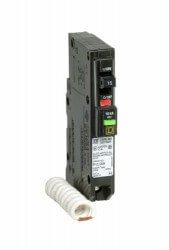Home inspections are not ‘code’ inspections, and a lot of home inspectors treat the word ‘code’ as taboo. They call it the ‘C-word’. I even had one home inspector tell me he’s not allowed to use that word in Kentucky. This is such a taboo word that I don’t use it much either, but I don’t think it has to be this way.
The basis of taboo
Three of the largest home inspection organizations make it clear in their Standards of Practice that home inspectors are not required to report on code compliance. For example, the ASHI Standards of Practice state that “Inspectors are NOT required to determine compliance with regulatory requirements (codes, regulations, laws, ordinances, etc.).” There is nothing in the standards prohibiting home inspectors from determining compliance… it’s just not a requirement.
Where ‘code’ plays a role in home inspections
Home inspections are conducted to educate the client – usually a home buyer. The ASHI Standards of Practice states that Inspectors are required to report on Unsafe conditions, which is defined as a condition that is judged to be a significant risk to bodily injury during normal, day-to-day use; the risk may be due to damage, deterioration, improper installation, or a change in accepted residential construction standards.
Accepted Residential Construction Standards
This is not explicity defined, but home inspectors all know that this means ‘building codes’. This is how construction standards are defined. Inspectors in different parts of the country have different building codes, so they also have different construction standards. What is acceptable in one part of the country might be unacceptable in Minnesota. Home inspectors should be expected to know what’s acceptable in their part of the country, and they should be able to prove it if necessary – this means citing code.
 It’s always a judgement call
It’s always a judgement call
Since 2003, the National Electric Code has required arc-fault circuit interrupters (AFCIs) for bedroom circuits. AFCIs help to prevent fires. Does the lack of an AFCI breaker in a home built before this requirement constitute an unsafe condition? In other words, should a home inspector bring up this topic for homes built before this requirement, and recommend having AFCIs installed? What about new construction homes? If a home inspector doesn’t answer ‘yes’ to the last two questions or ‘no’ to the last two questions, they’re basing their answer on ‘code’, not ‘unsafe conditions’. As home inspectors we often call these issues ‘construction defects’, but why not call a spade a spade? It’s a code violation.
Reuben Saltzman, Structure Tech Home Inspections – Email – Maple Grove Home Inspector
